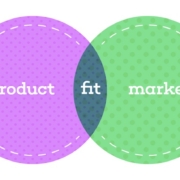Your product expertise is a crucial skill
You sometimes might get a sense from some quarters that the only skilled work of a Financial Broker is in financial planning, and that the product side of your customer relationship is, well the ugly side of it… This is flawed thinking. Yes, financial planning is an important and valuable skill, but implementing the optimal product suite is also a critical element of the value chain of a Financial Broker.
As an important element of the research completed for Brokers Ireland on “The Evolution of the Broker Market 2030”, we identified 12 areas to be considered by Financial Brokers to help prepare your business for the changing market environment. We now consider the fifth action identified, which highlights the importance of maintaining and building your product expertise.
At the end of the day, product advice and implementing product solutions will always be a very important component of the work carried out by Financial Brokers. Planning and guidance will only get clients so far; products are the vehicles that enable those plans to be implemented. If we go back a decade or so, products were pretty much the central element of client engagement. Looking forward though, the product piece will be just one component, albeit a critical element of an overall proposition. The challenge though is that clients place diminishing value on the product selection process, and so for Financial Brokers to deliver valued services, the planning and guidance elements must be delivered too.
In carrying out our research and interviews, we noted several product trends that will potentially emerge over the next decade. These are captured below. Financial Brokers need to consider if or how these will impact their business and what steps need to be taken to mitigate any negative effects.
Pensions and Investments
The pensions market in Ireland seems to go through constant change. As we look back over the last year, we only have to consider the impact of the effective withdrawal of Executive Pension Plans and the emergence of the PRSA as a contract of choice.
Also, after many false starts, auto-enrolment finally looks like it will happen… possibly in the next year or two? It is difficult at this point to see the role Financial Brokers will play in this market, as a viable advice proposition under the proposed charging structures does not look possible.
One of the trends most frequently mentioned in interviews during the research phase is the likely proliferation of centralised investment propositions within Financial Broker businesses. Managing the money and making investment decisions will be outsourced, with Financial Brokers no longer feeling the need to position themselves as investment gurus. This shift will also remove a lot of risk from businesses.
The interest in and application of sustainable investing solutions is currently becoming much more mainstream, and this is likely only to grow. While regulation is a driver of sustainable investing solutions today, the expectation is that as climate change and other forces become more urgent, client demand for sustainable solutions will increase.
Blockchain technology will probably also become more mainstream and Financial Brokers will need at a minimum to fully understand it. It is already visible in some areas today,[1] and while Financial Brokers may never recommend cryptocurrencies to clients, they need to fully understand how they work and be able to discuss them intelligently with clients.
Protection
Protection is an area of future growth for Financial Brokers, whose market share is currently around the 60% mark, significantly below the broker share of the pensions and investment markets. Making the process easier with technology will be a key deliverable here, with product providers likely playing an important role here. For a digital savvy consumer unused to the financial services space, the process of arranging a protection product is time-consuming, cumbersome, and tedious. An improved digital experience will be to the benefit of consumers, Brokers and providers alike.
Mortgages
Having had a market share of less than 10% after the financial crash, the market share for Brokers today is back up at 52%. This is a recognition of the benefits of engaging a Broker in the mortgage process, and a result of new lenders looking to achieve quality and scalable distribution. Brokers that offer a streamlined and efficient process will be able to continue to build a strong transaction-based income stream into the future.
How to prepare
The first step to ensure your product skills remain up to speed is to identify all of the product areas that will be important to your specific target market, and to build expertise in each of them. You then need to stand back, coldly evaluate your own skills, identify supplementary expertise that will be required and build your knowledge. This might be for example in wealth extraction and exit planning for business owners, inheritance and legacy planning for families etc.
Your next step then is to consider shortcomings in your current product approach. Do you require a centralised investment proposition, is your proposition around sustainable investing sufficient etc.? The final step then is to create a methodology to continually build your product knowledge to maintain your expert positioning. You need to be excellent today… and then remain excellent into the future.
While there is no doubt that some commoditisation will occur in the product space, there will always be room for innovation, expertise and personalised product solutions. My advice is to ignore the naysayers, and to recognise the important role your product skills will play in adding value to your clients in the future.





